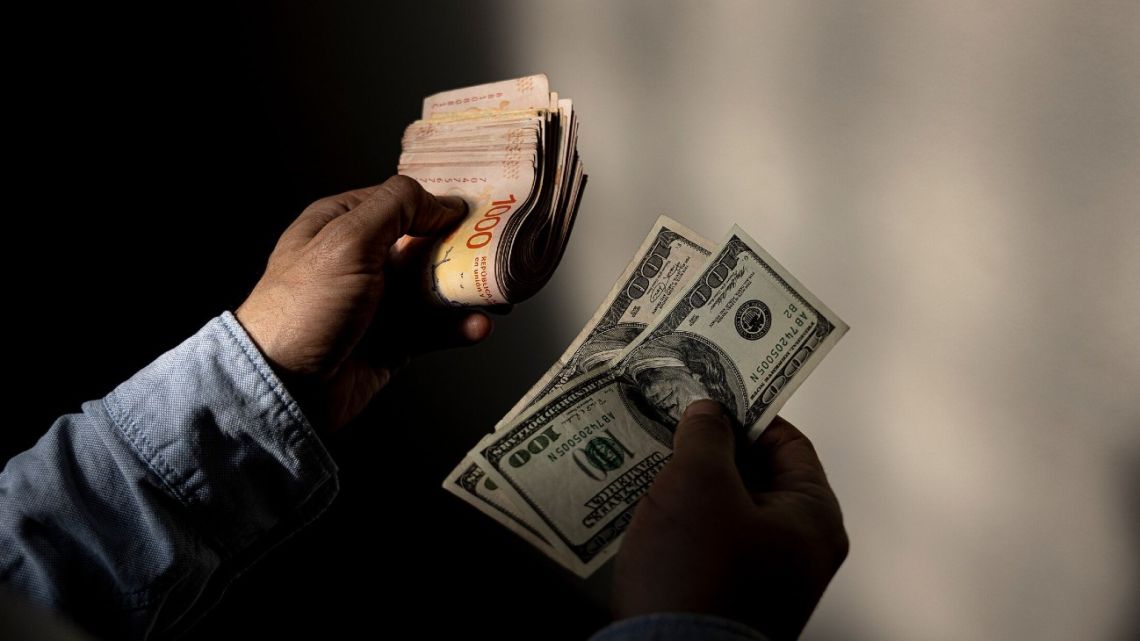Battle to prevent peso from facing a total meltdown is leaving the Central Bank, by some estimates, broke.

www.batimes.com.ar
Argentina’s fight to prevent its problematic currency from a total meltdown is leaving the Central Bank, by some estimates, broke.
The nation has already spent all of its liquid international reserves, plus another estimated US$1 billion, according to Buenos Aires-based consulting firm 1816 Economía & Estrategia — raising the stakes as the nation contends with a historic drought and impending recession.
Without easy-to-spend cash on hand, questions are swirling about how much longer the government can continue to defend the peso from an all-out collapse. At risk is a currency devaluation that stands to fan 104 percent inflation and exacerbate high levels of social unrest ahead of October’s presidential elections.
“Fewer reserves leads to more pressure on the exchange rate, which in turn leads to more pressure on inflation,” said Fernando Losada, a managing director at Oppenheimer & Co. “I see no possible scenario under which inflation goes below three digits this year.”
Argentina has struggled to build and keep international reserves at healthy levels for decades, running through cash piles to combat rising prices and juggle obligations on overseas bonds.
The nation now technically has less than US$34 billion in total foreign reserves, but the majority is locked up in less-liquid assets — such as gold, credit swap lines with China and the Bank of International Settlements and the dollars Argentines have in their savings accounts.
That’s a problem for a country in need of ready-to-spend cash. Argentina’s liabilities in foreign currency already exceed total reserves by about US$1 billion — the worst such ratio since the nation was wracked by economic crisis in the early 2000s, according to the 1816 firm’s report last week.
Argentina has been flying through its dollar reserves as it tries to stop a slide in the peso’s parallel-market exchange rate, which has replaced the government’s official currency rate amid draconian capital controls. In just the past week, the Central Bank sold about US$470 million to support the currency in parallel markets, said Fernando Marull, an economist at Buenos Aires-based consultancy FMyA.
It’s been difficult to measure the success of the government’s intervention. The unofficial peso lost about 13 percent against the US dollar last month, and is down 33 percent so far this year, by far the biggest decline in key emerging markets.
President Alberto Fernández has, in the past, attempted to beef up reserves by forcing dollars earned from exports to flow into Central Bank accounts and by accepting International Monetary Fund cash injections. But those measures are largely falling flat. And Fernández — who has already withdrawn his candidacy for re-election — has no guarantees that talks to rework a US$44-billion programme with the IMF will result in sped-up loan disbursements to help ease the situation.
A spokesperson for Argentina’s Central Bank said the market’s calculation of net reserves doesn’t properly reflect its balance sheet because it fails to account for other sources of financing, such as a currency swap line with China.
Officials have opted for other emergency measures in the meantime, including tapping the China swap to finance US$1.8 billion of imports from the country. It’s also working with Brazil to boost bilateral trade with credit lines in reais, allowing it to bypass the dollar.
For Argentines, the uncertainty is palpable.
Scarred by the Central Bank’s decision to freeze access to dollar savings during the 2001 economic crisis, many Argentines are already pulling cash from their savings. They yanked over US$1 billion of US dollar deposits from the banking system from late March to the end of April.
There are also few signs that reserves can be rebuilt any time soon. The worst drought of the century has all but removed any possibility of an influx of cash from agricultural exports before the elections.
“The risk of having liquid reserves in negative territory is that the Central Bank may not have the dollars needed to meet an even stronger outflow of foreign-exchange deposits,” said Juan Sola, an economist at BancTrust & Co in Buenos Aires.
@beijingwalker @etylo
- are Argentines paying China in toilet paper ?


www.batimes.com.ar








